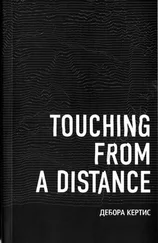“Soldiers of Jehu. The Wrathful Angels. There are more of us,” he said defiantly.
“Where?” asked Jarvis.
“The prophet’s militia. We’ll take you over the rim of the basin yet. You. All the other cursed gentiles. Even your president. Over the rim. The brethren.”
“Where? Where are the other brethren?” insisted Jarvis.
The man smiled.
“Why attack us? We got nothing. We’re poor,” said one of the emigrants.
“Like the prophet said, there are three kinds of poor.” Although exhausted by pain, the man clearly relished in the words he could not yet utter. He coughed and wheezed. “Prophet said: There are three kinds of poor. The Lord’s poor, the Devil’s poor, and the poor devils.” He laughed and coughed.
“This man here can cure you,” Jarvis said, pointing at Håkan. “Speak.”
“Over the rim.”
The man gave a series of muffled coughs, looked at the night sky, sputtered out a blotch of thick black blood, and died.
A beamless glow floated in the east. There was something sinister about the bodies of the emigrants strewn around camp, sleeping off their drunkenness by the paling embers. A few women were already at their chores. The horses of the fallen attackers had been hobbled and grouped together. Håkan found the bay that had belonged to the first man he had killed. He adjusted the stirrups and led the horse over to his packed burro. Jarvis lay nearby. Håkan left the gun next to him. The women stopped working and looked at Håkan from the black holes of their bonnets. He mounted and slowly rode away.
Would he ever confess to Linus what he had done? Håkan remembered his brother’s boastful stories, full of heroic deeds and displays of courage, and the mere thought that Linus might be impressed by his killings saddened him. Having experienced violence firsthand, Håkan realized now that all those childhood tales had to have been made up. Nobody could commit or witness those barbaric acts with such giddiness. And he preferred to think the stories were false rather than to even consider that his brother had felt such frivolous delight at bloodshed. In either case, his lies or his enjoyment darkened, for the first time, Linus’s image. But so much time had gone by, and so many things must have happened to him. Surely, he was a different person by now. What would this new man make of his younger brother and his sins? For Håkan did believe that he had sinned. Not against god, whose fading presence he barely considered anymore, but against the sanctity of the human body into which he had so recently been initiated and then, just months later, utterly violated. There were no exceptions, no excuses, no attenuations for this violation—not even Helen, whom he had been unable to save. What would these killings turn him into? What would he become?
Because he did not wish to see other people, he decided to travel east along a parallel line a few days south of the trail and ride up only when his supplies ran out. But he did not stay this course for long. His mind would drift off, and it was his horse who for the most part set their erratic course. Often, the three of them—burro, horse, rider—would simply stand in the middle of the plains. Aside from the occasional sigh or the halfhearted attempt at swatting away an insect, they all stood still, staring into the void. Brown flats, blue wall. From his animals, with their serenely sad, bulge-eyed gaze, Håkan seemed to have learned to gape into space. To this absent expression, he added a drooping jaw. They merely stood, completely absorbed by nothing. Time dissolved into the sky. There was little difference between landscape and spectators. Insensible things that existed in one another. Suddenly, Håkan would come out of his long stupor, consult his compass, and set out again, only to lapse into empty thoughts a moment later and once again relinquish his command to the bay. He barely ate—charqui, a biscuit. His fires at night were small. Sleep seldom came to him. He lost all count of time and had no clear idea of where he was. Still, he believed that, with luck and an extra effort, he could reach New York in a matter of weeks. And yet, he felt no desire to rush on. His thoughts weakened until they were just lethargic spasms in the thick fog that clouded his consciousness. Gradually, his reason quieted down, became a murmur, and finally ceased.
He was overwhelmed by an active, all-consuming hollowness—a corrosive shadow wiping out the world in its progress, a stillness that had nothing to do with peace, a voracious silence craving total desolation, an infectious nothingness colonizing everything. All that remained in its soundless, barren wake was an almost undetectable vibration. But in the absence of everything else, this faint drone was unbearable. Håkan had neither the will to make it stop (a simple task carried out with some sense of purpose, like keeping his course or cooking a meal, would probably have been enough) nor the strength to endure it. With the last dregs of consciousness he was able to scrape up, he managed to find a more or less hospitable spot with some water in it, surrounded by decent pasture fields. He tied the horse and the burro with long ropes, unpacked his tin box, and, from one of the vials kept there, took a few drops of Lorimer’s sedative tincture.
For a few moments—it was so fleeting—he did not matter, and that did not matter. There was a sky. There was a body. And a planet underneath it. And it was all lovely. And it did not matter. He had never been happy before.
And it did not matter.
Like a sphinx, the burro was stretched out next to him. He thought it was a dream, since he had never seen the burro lying down. They looked at each other. Dawn hummed on the horizon, but how many nights had preceded this daybreak, he could not tell. His piercing sunburn reached his bones. The lines defining the things around him—the bush, the beasts, his feet—were brittle. His body felt tingly and hollow. He walked to the pond and drank the cloudy, creamy water. After making sure his animals had all they needed, he ate some charqui and a lump of sugar. With a blanket, the saddle, and a few bags, he built a simple shelter to block out the sun. He crawled under it and took another dose of the tincture.
This time, he did not experience the bliss of irrelevance. He was merely snuffed out. His eyes rolled back, but he was surprised to discover they were still able to see in the dark. They looked back into his cranium, at his own brain. With the part of his perception that was not involved in the process of seeing, he understood that his brain was receiving the images of itself from the eyes attached to it. It took his brain a moment to understand how extraordinary the situation was.
“What brain has ever seen itself?” it thought.
It also thought that its crevices, color, and texture were unique and entirely different from other human brains it had studied in the past. For a moment, the brain found the vertigo of having its own image of itself within itself dizzying and even amusing. Then it thought that it should pay attention and learn. And with that, the brain’s surface turned from gray to brown. While retaining their shape, the pearly waves became bristly knolls, and the gelatinous surface was harshened by dust and sagebrush. A gang of buffalo came out from behind the eyes and ambled through the hills.
Now Håkan knew he was dreaming and lost interest. He sank into annihilation.
The unstable shelter had collapsed, and the blanket had wrapped itself around his upper body. Slithering sweat stung his chest and neck. It was the afternoon. An afternoon. The pond had shrunk to a puddle of brackish water. For no particular reason, that well-known patch of land where he had been for days now sickened him. He did not want to stay but lacked the will to move on. The only way out of his apathy, he thought, was to make it deeper by extinguishing himself again with a few more drops of the tincture. The lack of water for his animals, however, made another prolonged absence impossible. With weak, unsteady hands, he packed the burro and saddled the horse and set out, itchy from the sun, his sweat, and insect bites. Scratching his face, he realized that his beard was now thick and full.
Читать дальше












